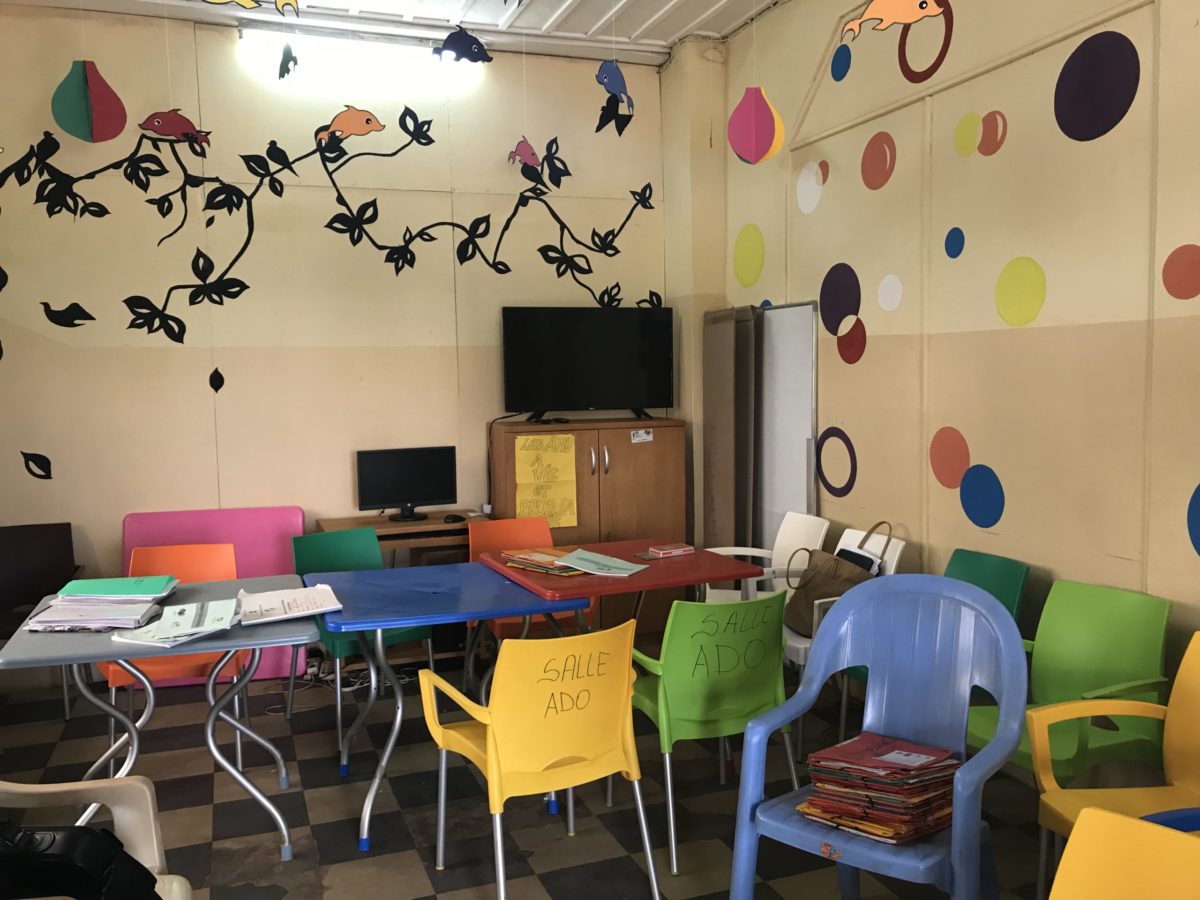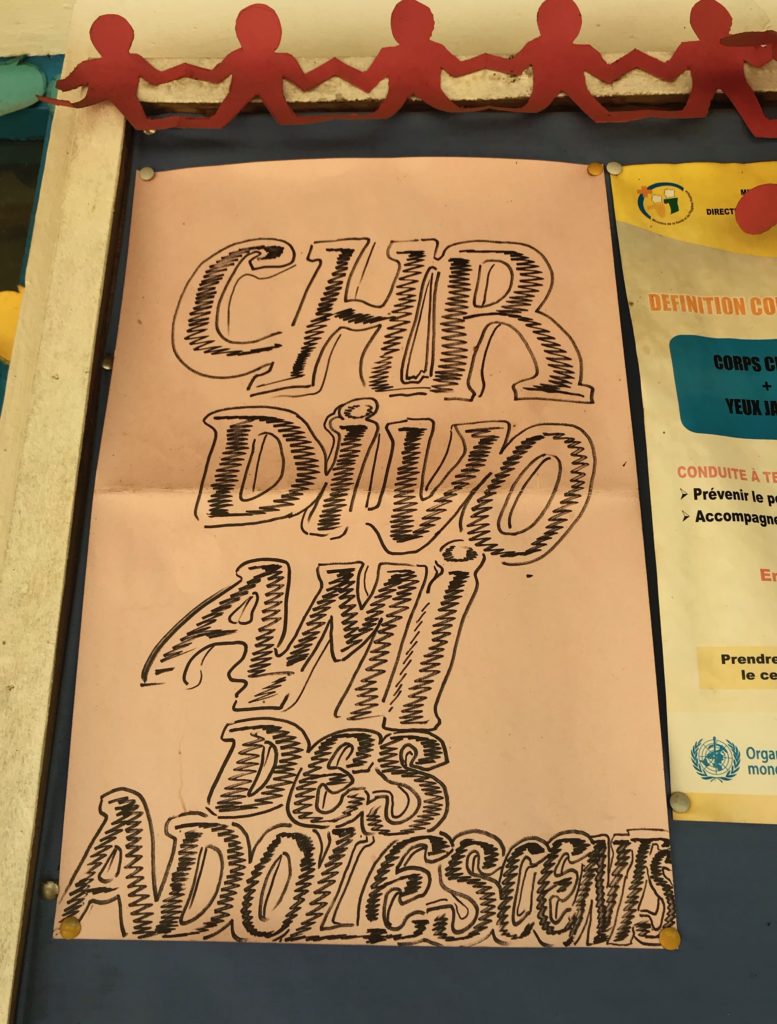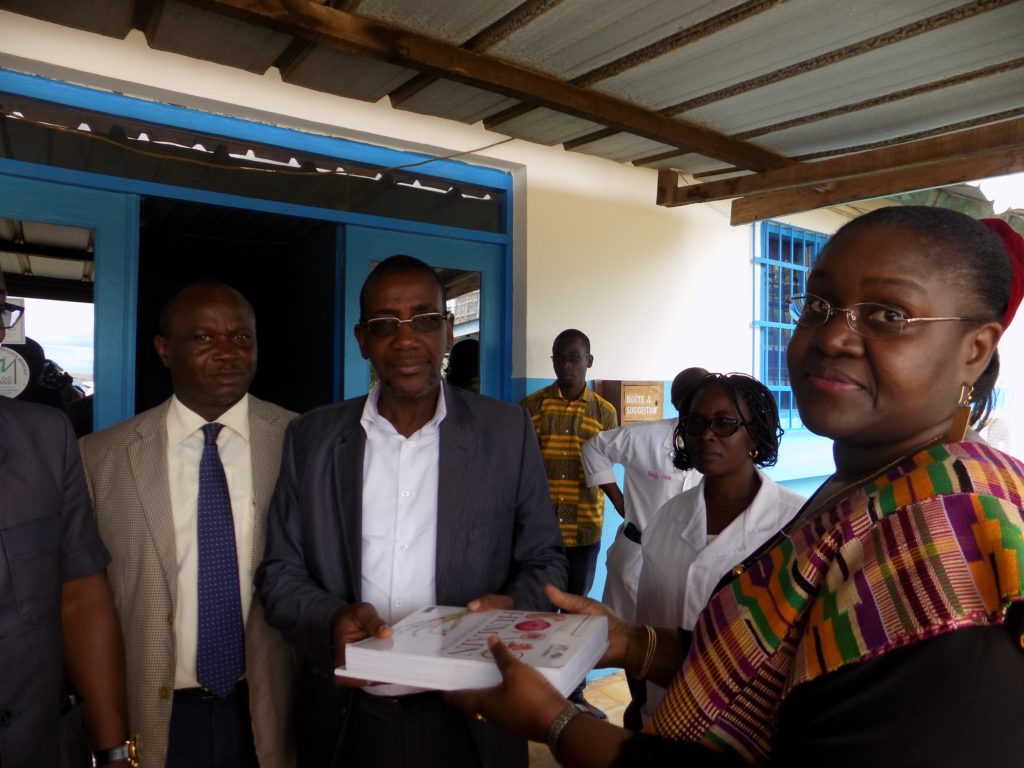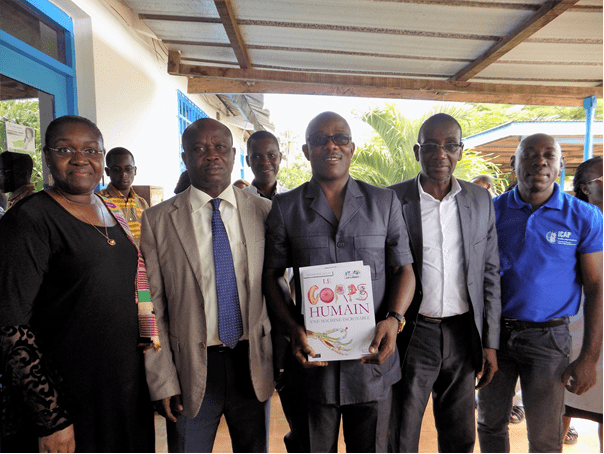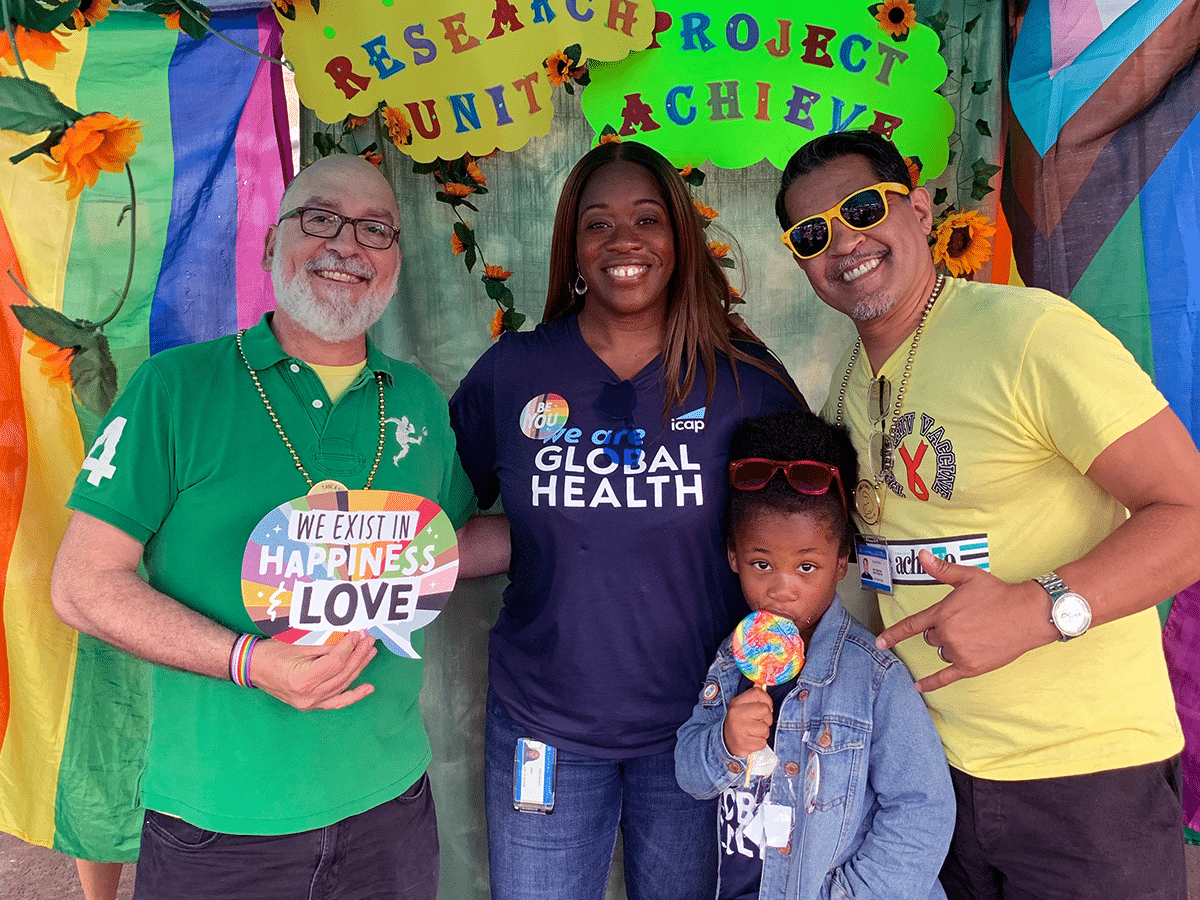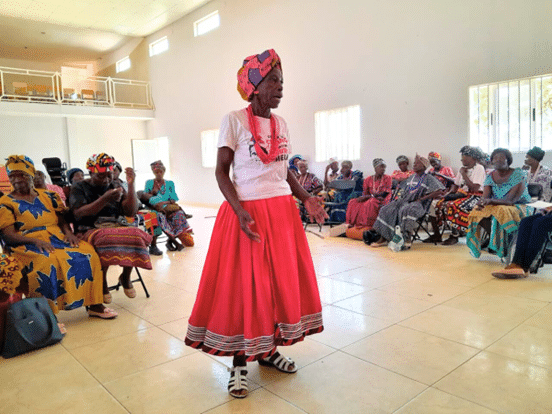The transition from childhood to adulthood can be rife with challenges related to identity, health, and wellbeing. For adolescents living with HIV in Côte d’Ivoire, these struggles are often amplified due to stigma, a lack of readily available information, and a scarcity of psychosocial support.
These barriers can interrupt an adolescent’s HIV treatment regimen or altogether prevent them from seeking or receiving the care they need to thrive. An effective support system could mean the difference between good and poor health.
In Côte d’Ivoire, health services are not always tailored to meet the unique needs of this key population, leading to challenges in treatment adherence and retention in care. To address this gap, ICAP, with support from the U.S. President’s Emergency Plan for AIDS Relief (PEPFAR) through the Centers for Disease Control and Prevention (CDC), has been working with the Côte d’Ivoire Ministry of Health since 2007 to develop and implement national HIV programs and policies that ensure broad access to HIV prevention, education, testing, and treatment, including for adolescents living with HIV.
ICAP in Côte d’Ivoire’s technical approach to supporting adolescents living with HIV starts with the peer educator program, whereby young people are encouraged to build a system of mentorship and peer-to-peer learning and support.
From December 2015 through December 2016, an initial cohort of adolescents living with HIV were identified at the Central University Hospital in Cocody based on factors such as literacy-level, adherence to medication, good health, courtesy, and sociability, to be supervised by experienced social workers as participants in ICAP’s training curriculum—an adaptation of “Positive Voices, Positive Choices” to fit the context of Côte d’Ivoire—where they learned how to serve as peer educators at their respective district hospitals.
Since the inception of these efforts in 2016, peer educator trainings and the implementation of these services have proven to make a difference in the retention of adolescents in care, and their overall health. Today, across five hospital sites, the percent of adolescents retained in care has increased from 77.2% to 82.8% following the implementation of the adolescent peer program.
Though the peer educator system was successful early on, providers began noticing that at their sites, there was no designated space for adolescents to interact. Hospitals and clinics do not typically promote the warm and inviting nature needed for a young person to open-up and honestly discuss their health.
As a result, in September 2018, ICAP set up user-friendly rooms for adolescents living with HIV in the pediatric departments of two of the district hospitals where peer education groups gather, Centre Hospitalier Regional De Divo (CHR Divo) and Hospital General Adzopé (HG Adzopé).
ICAP donated materials to fully suit these convivial rooms—25 chairs, six tables, two plasma TVs, two DVD players, two complete computer kits accompanied by table and internet connection, two mini libraries with books on HIV and other topics of positivity, board games, and more. The rooms were unveiled in a ceremony attended by the Regional Director of Health and Public Hygiene, the Departmental Directors of Health, and the directors of the two hospitals.
A welcoming sign in the adolescent-friendly room of CHR Divo
At the ceremony, Nathalie D. Grah-Aboua, MD, MPH, senior technical consultant in PMTCT and pediatric HIV care and treatment at ICAP in Côte d’Ivoire said, “ICAP participates in the common effort to allow these teenagers to have a space dedicated to them for their development and to improve their compliance with treatment and retention.”
“These adolescent-friendly rooms are spaces designed to privilege honest exchanges, to create and strengthen links, to share personal experiences, and to allow young people to create comradery, group spirit, and foster psychosocial support through peers” said Stephania Koblavi-Deme, PharmD, PhD, country director of ICAP in Côte d’Ivoire.
Nathalie D. Grah-Aboua, MD, MPH (right) symbolically handing a medical book to Anouan N’Guessan Jean, MD, CHR Divo’s Regional Director of Health
One year later, the adolescent-friendly rooms at CHR Divo and HG Adzopé have extended beyond their scope to improve retention in care by serving as a space for child development and protection, promoting resilience and wellbeing in children and young people.
Jessica LaHote, a master’s in public health candidate at Columbia University Mailman School of Public Health, served as a program monitoring and evaluation intern at ICAP where she conducted an internal assessment of ICAP in Cote d’Ivoire’s adolescent peer program for her summer practicum. When asked about the impact of the adolescent-friendly rooms she noted, “in my qualitative assessments of the peer educator program, the sites with adolescent-friendly rooms said it was a huge strength to their program to have a safe, open space where adolescents could come and talk about what they were going through but also come together and have fun and play. The sites that don’t yet have adolescent-friendly rooms know what an advantage it could be to their programs.”
According to Anouan N’Guessan Jean, MD, regional director of health and public hygiene of CHR Divo, the peer education program and adolescent-friendly rooms are a huge advantage, moving Côte d’Ivoire closer toward epidemic control.
Representatives from ICAP and CHR Divo at the adolescent-friendly rooms launch ceremony. From left to right: Nathalie Grah-Aboua , MD, MPH, senior technical consultant at ICAP; Kodji Florent, MD, departmental director of health at CHR Divo; Momine Roger, MD, director of CHR Divo; Anouan N’Guessan Jean, MD, regional director of health at CHR Divo; Kouamé Ablé Louis, MD, site support manager at ICAP.


